Nose Surgery in South Africa
Search and Compare the Best Clinics and Doctors at the Lowest Prices for Nose Surgery in South Africa

Find the best clinics for Nose Surgery in South Africa
With Medijump you can browse 7 facilities offering Nose Surgery procedures in South Africa. The cheapest price available is $3,168 in Cape Town, Johannesburg. And for the cheapest price globally, prices start from $101 in Poland.
Nose Surgery in Cape Town
Price: $ 3,168
Poland offers the best prices Worldwide
Price: $ 101
From 16 verified reviews
Rebecca O'Connor, 23 September 2020
Dr. Gideon Maresky is amazing. I underwent otoplasty and rhinoplasty procedures and couldn't have asked for a better experience. Everything ran very smoothly.
From 18 verified reviews
Juliettash Stadler, 05 May 2020
My Son was admitted with a very rare autoimmune illness in April this year. The care he was given was superb Prof Dheda, Prof Louw and their team of specialists covered every possibility , diagnosed efficiently and treated effectively. There was time taken to explain everything. The Hospital Matron made allowances for me to spend as much as possible time with my son and also allowed for frequent visits from close family. Mr Daniel Mathew the Hospital General manager is very approachable and interested . The staff was friendly and helpful. Basically every one from reception through admin to ICU was friendly and helpful. I Highly recommend this hospital
From 72 verified reviews
Charlotte Sorour, 13 March 2020
Parking is a huge problem.On a positive note it is a great hospital with great specialists and doctor's hence why it is so busy. Well worth driving around a bit looking for parking knowing your loved one's are in good hands. My mind at ease. My husband is well looked after. Thank you Linksfield staff :)
From 36 verified reviews
Kim Adams, 30 March 2020
Overall I had a good experience.
From 38 verified reviews
Nompumelelo Madliwa, 19 April 2020
I had such a wonderful experience there with Dr Thomas, I had a skin drafting done it was such a smooth process I am healing very well and had a great stay there, Thank you so much
Dr Brian Wolfowitz, located in Council St, Johannesburg, South Africa offers patients Nose Surgery procedures among its total of 5 available procedures, across 2 different specialties. Currently, there's no pricing information for Nose Surgery procedures at Dr Brian Wolfowitz, as all prices are available on request only, whilst the national average price is approximately $3,807. All procedures and treatments are undertaken by the lead specialist at the Hospital, and they have multiple recognized accreditations, including: AAO - American Academy of Otolaryngology-Head and Neck SurgeryAAFPRS - American Academy of Facial Plastic and Reconstructive Surgery
Dr Dawid Potgieter, located in Syfred Douglas St, Cape Town, South Africa offers patients Nose Surgery procedures among its total of 90 available procedures, across 1 different specialties. Currently, there's no pricing information for Nose Surgery procedures at Dr Dawid Potgieter, as all prices are available on request only, whilst the national average price is approximately $3,807. All procedures and treatments are undertaken by the lead specialist at the Hospital, and they have multiple recognized accreditations, including: HPCSA - Health Professions Council of South AfricaDepartment of Health, Western CapeFCS(SA) - Fellowship of the College of Surgeons of South Africa
- Home
- South Africa
Compare Before & After Photos of _procedure_photos.phpNose Surgery
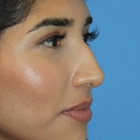
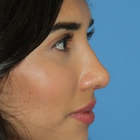
Full-side view
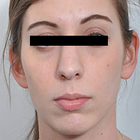
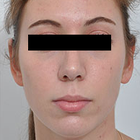
Front view
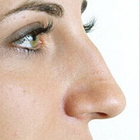
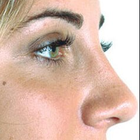
Full-side view
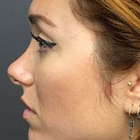
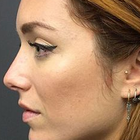
Full-side view
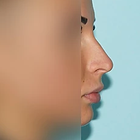
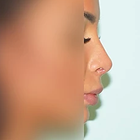
Full-side view
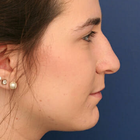
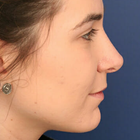
Full-side view
WHY US?
At Medijump, we're making medical easy. You can search, compare, discuss, and book your medical all in one place. We open the door to the best medical providers worldwide, saving you time and energy along the way, and it's all for FREE, no hidden fees, and no price markups guaranteed. So what are you waiting for?

Free

Best Price

Widest Selection

Risk-Free
What you need to know about Nose Surgery in South Africa
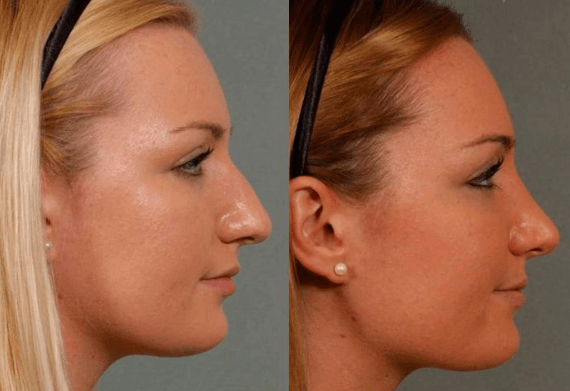
Commonly referred to as a Rhinoplasty, it is the medical term for reshaping of the nose or corrective surgery of the nose. It is one of the most common facial plastic surgeries (Facelift) procedures performed. Nose surgery can be performed to change the consequence of genetics, birth defect or nasal injury. It can be performed to enhance the appearance and/or to improve nasal breathing.
Surgery can be performed to correct nasal humps, the curvature of nose-bridge, nose tip irregularities, and asymmetry in the nostrils. The nasal appearance can be altered in various ways using intra-nasal chisels. Nose surgery procedures generally fall under three types: open rhinoplasty, closed rhinoplasty, and tip rhinoplasty. Rhinoplasty is normally performed under general anesthesia and will not leave any visible scars on the nose.
What does a Nose Surgery Procedure Involve?
Nose surgery is an individualized surgery. Before the surgery, you will need to discuss important factors with your surgeon to determine if it is suitable for you. Your surgeon will review your medical history, including your previous surgeries, medical conditions, and any medications you are taking. You will need to have a complete physical examination, such as blood tests. Your surgeon will also consider your other facial features, the skin on your nose, and what you would like to change or correct. Then, your surgeon will develop a customized plan for you. Two weeks before and after surgery, avoid any medications that contain aspirin or ibuprofen, such as Advil and Motrin IB because these medications can increase bleeding. You will need to also stop taking herbal remedies and over-the-counter supplements. If you are an active smoker, stop smoking because smoking can slow your healing process and increase the risk of getting an infection.
During the actual surgery, you will be given either local anesthesia or general anesthesia. The type of anesthesia depends on how complex the surgery is and what the surgeon would prefer to use. Then, the surgery will start by making incisions inside your nose or at the base of your nose between your nostrils. Your surgeon will reshape the inner bone and cartilage underneath your skin to make a more pleasing appearance.
There are several ways to change the shape of your nasal bones or cartilage, depending on your nose’s structure and how much needs to be removed or added. If only small changes are required, your surgeon may use cartilage taken from deeper inside your nose or your ear. However, for a much larger change, your surgeon may use cartilage from your rib, implants, or bone from other parts of your body. When the changes are finished, your surgeon will place the nose’s skin and tissue back. The incisions will be closed by stitches.
How Long Should I Stay in South Africa for a Nose Surgery Procedure?
If everything goes well, you can go back to your hotel on the same day once the effects of anesthesia wear off. However, you will need to stay in a recovery room for a few hours so the staff can monitor you. Some people may need to stay in hospital overnight. After you are discharged from the hospital, you will need to stay in South Africa for at least 10 to 14 days for initial recovery, follow-up checkups, and for the stitches to be removed.
What's the Recovery Time for Nose Surgery Procedures in South Africa?
The recovery period for nose surgery can be different from person to person. In general, 2 to 3 weeks is needed until you can get back to your full normal routine and 3 to 6 weeks until you can do any strenuous activity. However, you should be able to go back to work within a week, except if your job requires strenuous physical activity. You will feel gradually better each day in the first week. You will experience swelling, which can take six months to subside. The only people who will notice the swelling is you and your surgeon. Your final nose shape will be apparent after it is completely healed.
What sort of Aftercare is Required for Nose Surgery Procedures in South Africa?
After the surgery, you may need to wear a nasal splint for the first week. The splint is used to protect and support your nose. Your nose may be congested due to swelling or from the nasal splint. You need to rest in bed with your head raised higher than your chest to reduce bleeding and swelling. For a few days after the surgery, you may also experience slight bleeding and drainage of mucus. Your surgeon may place a “drip pad” under your nose to absorb drainage.
Your surgeon may ask you to avoid strenuous activity, take baths instead of showers, avoid blowing your nose, eat high-fiber foods to avoid constipation, not to do any facial expressions (smiling or laughing), not wearing pull clothing and wear button-downs instead.
For at least several weeks after the surgery, do not rest eyeglasses or sunglasses on your nose to prevent pressure. You should also wear SPF 30 sunscreen when you are outside because too much sun can cause permanent irregular discoloration to your nose. Do not put anything such as ice or cold packs on your nose even though it is swelling as the swelling will go away faster by limiting your dietary sodium.
What's the Success Rate of Nose Surgery Procedures in South Africa?
Nose surgery is known to have around 80% to 90% success rate. Nevertheless, just like any other surgery, it still has possible risks and complications. These risks are bleeding, infection, numbness, permanent nerve damage, and an adverse reaction to the anesthesia. You should call your surgeon immediately if you suspect any of the symptoms. Other possible risks are difficulty breathing through your nose, uneven-looking nose, persisting pain, swelling, and discoloration, scarring, septal perforation, and the need for a second or third surgery.
For an in-depth analysis of the closed rhinoplasty procedure with before and after images, watch this short video.
Are there Alternatives to Nose Surgery Procedures in South Africa?
If you do not want to undergo surgery, or if it is not suitable for you, you can get filler injections, such as Botox, Juvaderm, and Restylane. They can change the shape of your nose and only require a short visit to the doctor. This method is not painful and needs no incisions or stitches.
Whilst the information presented here has been accurately sourced and verified by a medical professional for its accuracy, it is still advised to consult with your doctor before pursuing a medical treatment at one of the listed medical providers
No Time?
Tell us what you're looking for and we'll reachout to the top clinics all at once
Enquire Now

Popular Procedures in South Africa
Prices Start From $404

Prices Start From $111

Prices Start From $70

Prices Start From $220

Prices Start From $1,945

Prices Start From $192

Prices Start From $500

Recommended Medical Centers in South Africa for Nose Surgery

- Interpreter services
- Translation service
- Religious facilities
- Medical records transfer
- Medical travel insurance
- Health insurance coordination
- TV in the room
- Safe in the room
- Phone in the room
- Private rooms for patients available

- Interpreter services
- Translation service
- Religious facilities
- Medical records transfer
- Medical travel insurance
- Health insurance coordination
- TV in the room
- Safe in the room
- Phone in the room
- Private rooms for patients available

- Interpreter services
- Translation service
- Religious facilities
- Medical records transfer
- Medical travel insurance
- Health insurance coordination
- TV in the room
- Safe in the room
- Phone in the room
- Private rooms for patients available

- Interpreter services
- Translation service
- Religious facilities
- Medical records transfer
- Medical travel insurance
- Health insurance coordination
- TV in the room
- Safe in the room
- Phone in the room
- Private rooms for patients available

- Interpreter services
- Translation service
- Religious facilities
- Medical records transfer
- Medical travel insurance
- Health insurance coordination
- TV in the room
- Safe in the room
- Phone in the room
- Private rooms for patients available

- Interpreter services
- Translation service
- Religious facilities
- Medical records transfer
- Medical travel insurance
- Health insurance coordination
- TV in the room
- Safe in the room
- Phone in the room
- Private rooms for patients available

- Interpreter services
- Translation service
- Religious facilities
- Medical records transfer
- Medical travel insurance
- Health insurance coordination
- TV in the room
- Safe in the room
- Phone in the room
- Private rooms for patients available

- Interpreter services
- Translation service
- Religious facilities
- Medical records transfer
- Medical travel insurance
- Health insurance coordination
- TV in the room
- Safe in the room
- Phone in the room
- Private rooms for patients available

- Interpreter services
- Translation service
- Religious facilities
- Medical records transfer
- Medical travel insurance
- Health insurance coordination
- TV in the room
- Safe in the room
- Phone in the room
- Private rooms for patients available

- Interpreter services
- Translation service
- Religious facilities
- Medical records transfer
- Medical travel insurance
- Health insurance coordination
- TV in the room
- Safe in the room
- Phone in the room
- Private rooms for patients available
Nose Surgery in and around South Africa
About South Africa
South Africa is home to some of the world's most luxurious private game reserves and lodges. Wildlife lovers come here from all corners of the globe in search of the "Big Five": lion, buffalo, leopard, rhino, and elephants. Coral reefs, shark dives, dragon-backed mountain ranges, white-water rafting, and golden beaches lapped by legendary surf breaks are some of South Africa's many other attractions. Traveling around this vast land and touring the vibrant cities, visitors can learn about the nation's turbulent history. Travelers coming to South Africa for medical treatments do so for cost savings, advanced medical technology, and the internationally qualified and skilled doctors. The country welcomes an ever-increasing number of medical tourists each year, many of which travel for Nose Surgery procedures. Medical Tourists travel from all across the globe, particularly from African countries with an inferior healthcare system. Popular destinations include the capital city, Pretoria, neighboring Johannesburg, and the stunning Cape Town.
Popular Parts of South Africa
With more than 57 million inhabitants, South Africa is the world’s 24th most populous nation. It is a multiethnic society with a large variety of cultures, languages, and religions. Known for its exhilarating outdoor adventure, fascinating wildlife, magnificent landscapes, and opulent history makes South Africa a truly magical destination
- Cape Town is the oldest city and the legislative capital of South Africa. This pleasant city has a lot to offer as you can Hike the Table Mountain, take a wine tour, cruise to Robben Island, relax on beautiful beaches, visit District Six Museum, discover Kirstenbosch Botanical Gardens, and watch the Boulders Penguin Colony or shop in trendy markets.
- Johannesburg is the largest and the most populous city. It is changing rapidly into an ultra-modern metropolis. Other than being an urban city, it also boasts a rich history. Tourists can visit the Apartheid Museum to learn more about the country’s difficult past through exhibitions. Other museums such as MOAD and MuseuMAfriCA are also worth a visit to view the city’s art and history.
- Durban is a cosmopolitan city with sunny beaches and charming Afro-Indian culture. There are more Indian nationals residing in this city than any other country outside of India. It is the place to go if you want to see marine life. Visit uShaka Marine World where you can snorkel, dive, and interact with animals.
- Pretoria is a scenic city and you will find various historic buildings with astounding architecture such as the Voortrekker Monument, Union Buildings, and Church Square with its statue of Paul Kruger. Those who are looking for some outdoor activities can explore Pretoria National Botanical Garden and Rietvlei Nature Reserve for some wildlife viewing.
- Kruger National Park is one of the largest national parks and one of the most exciting safari destinations in the world. Here you can view all of Africa’s safari species such as Lion, Elephant, Rhino, Leopard, Buffalo, Hippo, and Giraffe along with more than 100 mammal species and 500 varieties of bird.
Weather and Climate in South Africa
South Africa’s climate is determined by its situation in the Southern Hemisphere’s subtropical zone and between the Atlantic and Indian Oceans. The country is a year-round destination thanks to its varying regional climates. May to September is the Dry Season with little to no rain. The days are mostly sunny, but it gets cold in the evenings and mornings. The average temperature during this season is around 14 °C with June to August as the coldest months. The wet season starts in October and ends in April. There will be occasional short rain showers in the afternoon. The average temperature during the wet season is around 20 °C, but it can also be as high as 35 °C, especially in December, January, and February.
Getting Around in South Africa
The main and the busiest airport in South Africa is the O.R. Tambo International Airport. The airport is located in Kempton Park, near Johannesburg and Pretoria. It serves as the primary domestic and international gateway to and from South Africa. The airport operates flights to other cities in South Africa as well as numerous major cities in the world including London, Singapore, Sydney, Abu Dhabi, and Atlanta. There are also two other major international airports: Cape Town International and King Shaka International. The inexpensive way to travel around the country is by flying with budget airlines such as FlySadair, Kalula.com, and Mango.
South Africa has an excellent infrastructure and is easy to navigate. However, if you wish to visit several cities, expect to have at least one long-distance trip. You can travel around by bus, train, or rental car. There are several long-distance bus companies you can choose, such as Intercape, Translux, and Greyhound. The buses are relatively affordable and safe. They are generally equipped with air-conditioning and an onboard toilet. For short-distance travel, Baz Bus is the best choice. A one-way ticket fare starts at around 500 ZAR.
Although trains are slow, they are less expensive than flights and more comfortable than buses. Shosholoza Meyl long-distance trains serve Cape Town, Johannesburg, Durban, Bloemfontein, and several other major cities. This train is very affordable with tickets costing as low as 400 ZAR for a sleeper train. If you’re looking for a more luxurious train, try the Blue Train which offers comfortable compartments, good food, and wine for around 18,300 ZAR.
Taxis are available to get around major cities. Tourists can hail one directly from the streets. However, since the taxi ranks are not common, it is best to call for one. The base fare can be different in every city, ranging between 11 ZAR to 20 ZAR.
Tourist Visas in South Africa
A valid visa is required if you wish to visit South Africa. Citizens of more than 60 countries can enter and stay for up to 90 days. Other countries not listed in the visa exemption agreement must apply and obtain a visa to the nearest South Africa embassy or consulate. All visitors must hold a passport valid for at least 30 days after the expiration of their intended visit, and the passport must have at least two unused pages.
Additional Information
- Local Currency: South African Rand (ZAR) is the official currency. 1 USD converts to 14 ZAR.
- Money & Payments: Tourists can find ATMs all around the country. Credit Cards are widely accepted. However, since South Africa has a reputation for scams, you should inform your bank about your travel plans to avoid declined transactions. It is also advisable to always bring some cash with you. Tipping is expected here and you can tip around 10% to 15% of the bill in restaurants and cafes and the standard tip in hotels is 10 to 20 ZAR.
- Local Language: There are 11 official languages in the country, including Zulu, Xhosa, Afrikaans, Northern Sotho, Tswana, Southern Sotho, Tsonga, Swazi, Venda, Southern Ndebele, and English. Zulu is the most widely spoken language.
- Local Culture and Religion: As a secular state, South Africa has a diverse religious population. Most of the population follows Christianity. Other religions such as the traditional African religion, Islam, Hinduism, and Judaism are also freely practiced.
- Public Holidays: The country has 12 public holidays such as New Year’s Day, Good Friday, Freedom Day, and Christmas Day.
Popular Searches
- Plastic Surgery in Thailand
- Dental Implants in Thailand
- Hair Transplant in Thailand
- Breast Augmentation Thailand
- Gastric Sleeve in Thailand
- Gender Reassignment Surgery in Thailand
- Laser Hair Removal in Bangkok
- Botox in Bangkok
- Dermatology in Bangkok
- Breast Augmentation in Bangkok
- Coolsculpting in Bangkok
- Veneers in Turkey
- Hair Transplant in Turkey
- Rhinoplasty in Turkey
- Stem Cell Therapy in Mexico
- Rhinoplasty in Mexico
- Liposuction in Mexico
- Coolsculpting in Tijuana
- Rhinoplasty in Korea
- Scar Removal in Korea
- Gastric Sleeve in Turkey
- Bone Marrow Transplant in India
- Invisalign in Malaysia
- Plastic Surgery in the Dominican Republic
- Tummy Tuck in the Dominican Republic
- Plastic and Cosmetic Surgery in Poland
- Rhinoplasty in Poland
- Hair Implant in Poland
- Dental Implants in Poland
- IVF in Turkey




